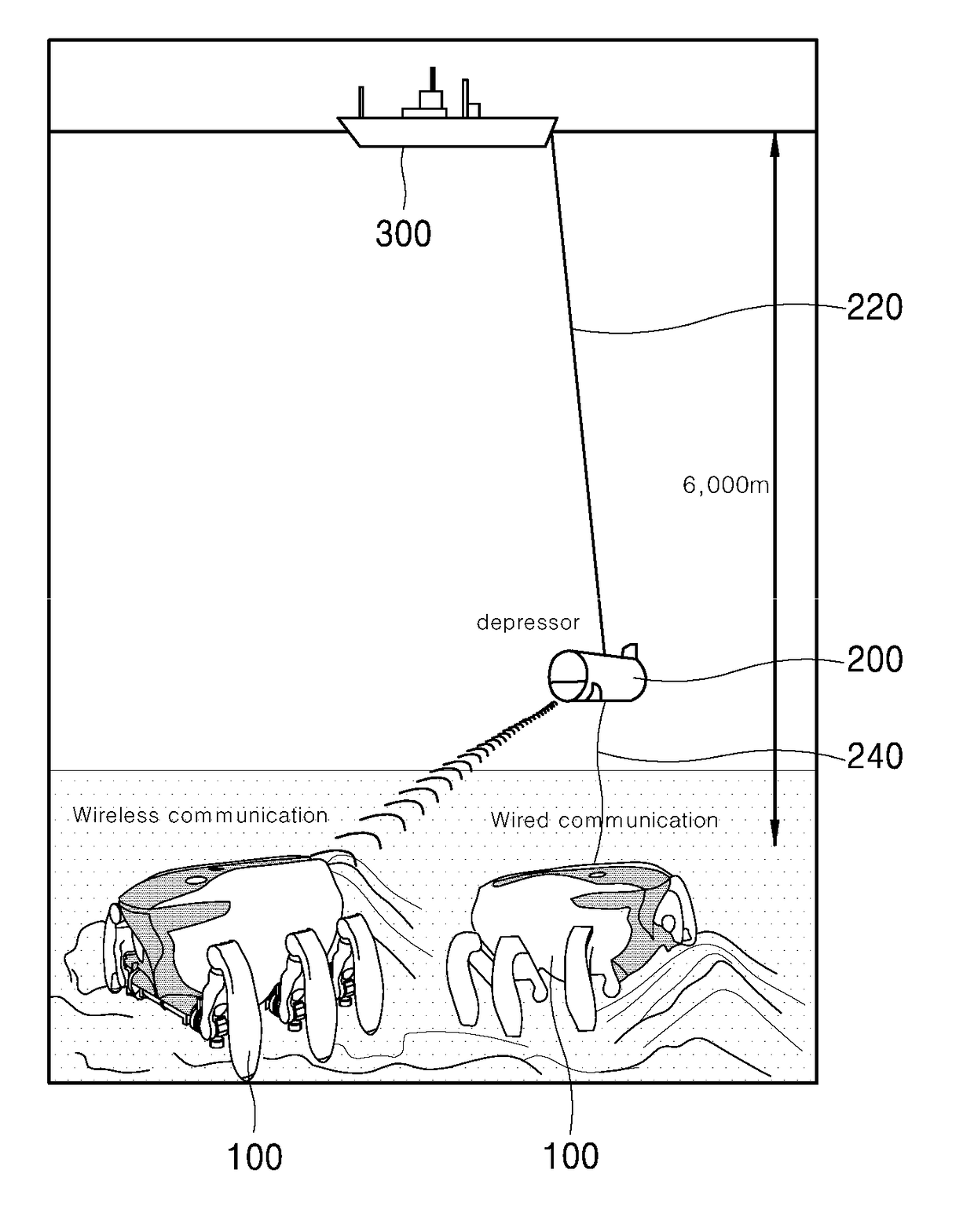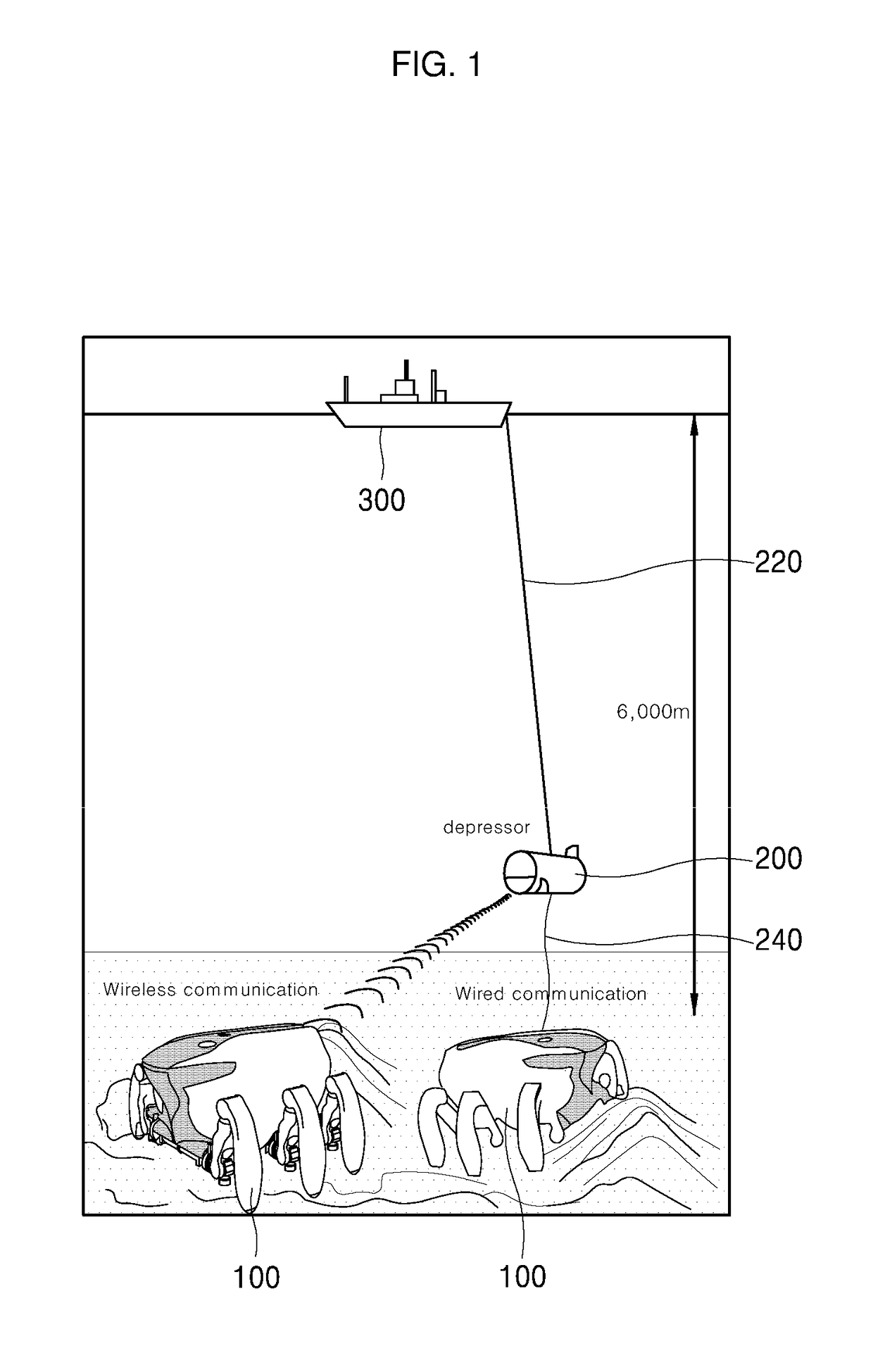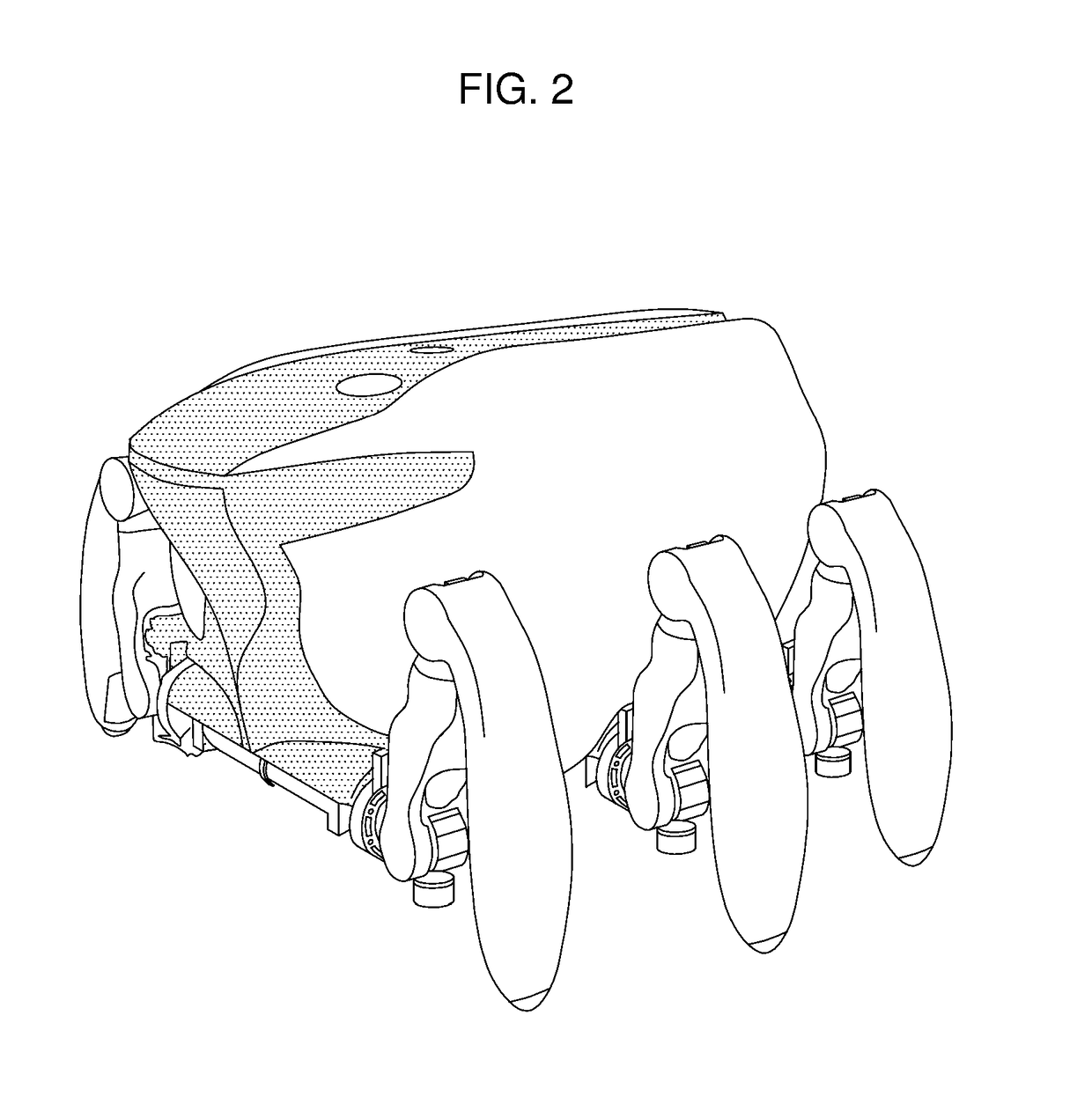Glass sphere type pressure housing including titanium band and a multi-joint underwater robot system for deep sea exploration using the same
- Summary
- Abstract
- Description
- Claims
- Application Information
AI Technical Summary
Benefits of technology
Problems solved by technology
Method used
Image
Examples
Embodiment Construction
[0058]Advantages and features of the present invention, and methods of accomplishing the same will become more apparent with reference to embodiments to be described in detail in conjunction with the appended drawings. However, the present invention is not limited to the embodiments set forth herein, which are intended to be embodied in many different forms. The embodiments are solely presented for a more complete disclosure of the present invention and are intended to provide the complete scope of the invention to those skilled in the art to which this invention pertains. The present invention is solely defined by the claim category. Throughout the descriptions, like reference numerals designate like elements, although the elements are shown in different drawings.
[0059]Exemplary embodiments of the present disclosure will be described in detail below with reference to the accompanying drawings.
[0060]FIG. 1 is a schematic conceptual diagram of a deep-sea exploration multi-joint under...
PUM
 Login to View More
Login to View More Abstract
Description
Claims
Application Information
 Login to View More
Login to View More - R&D
- Intellectual Property
- Life Sciences
- Materials
- Tech Scout
- Unparalleled Data Quality
- Higher Quality Content
- 60% Fewer Hallucinations
Browse by: Latest US Patents, China's latest patents, Technical Efficacy Thesaurus, Application Domain, Technology Topic, Popular Technical Reports.
© 2025 PatSnap. All rights reserved.Legal|Privacy policy|Modern Slavery Act Transparency Statement|Sitemap|About US| Contact US: help@patsnap.com



